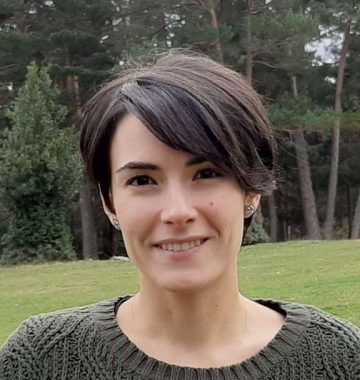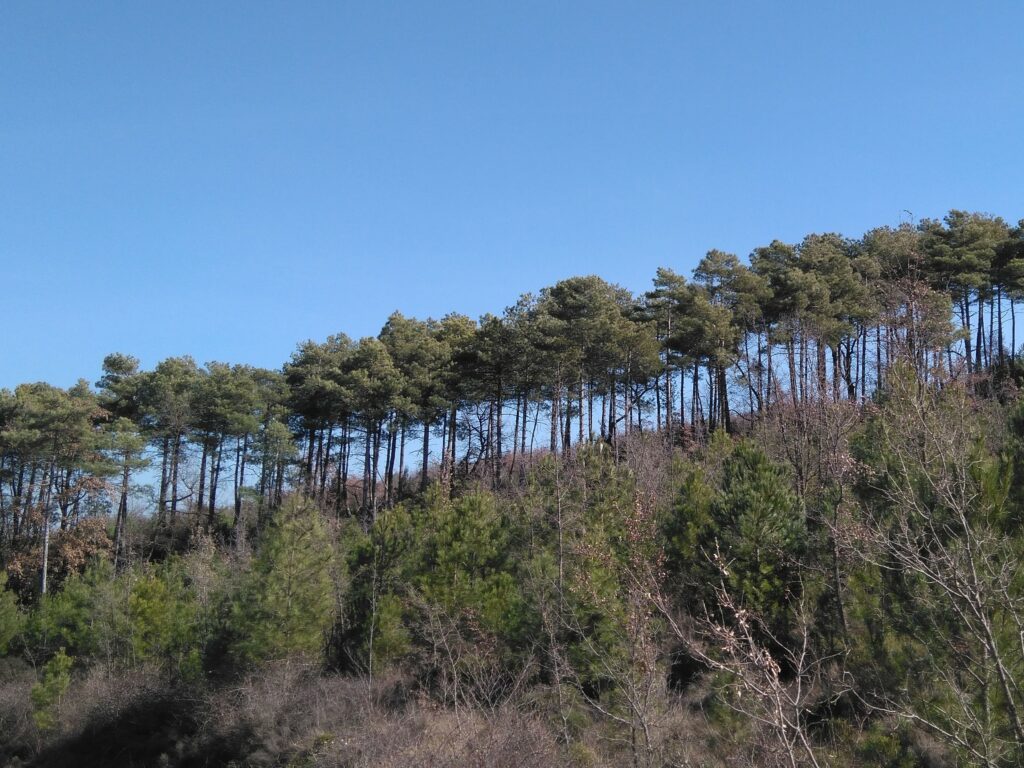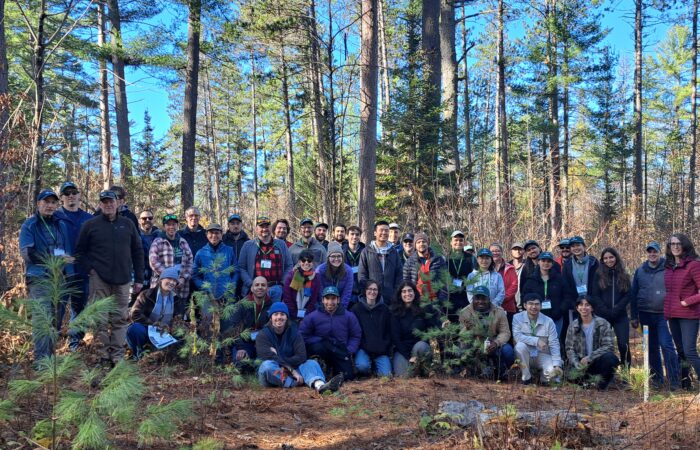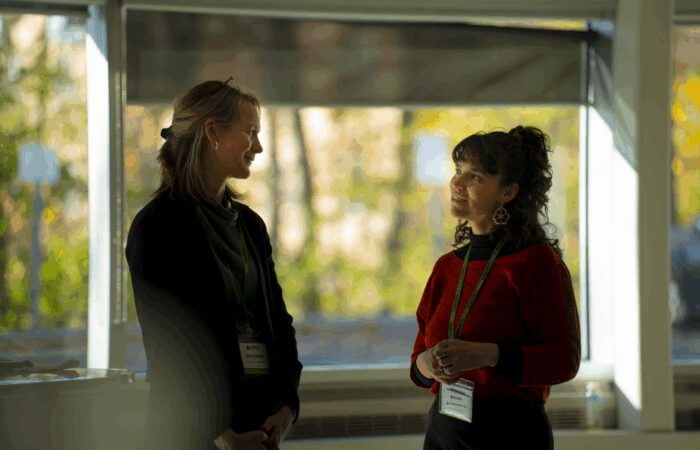
Nous avons récemment interviewé Martina Sánchez Pinillos, post-doctorante pour DIVERSE, qui nous a parlé de sa participation au projet et des raisons pour lesquelles elle se réjouit personnellement de faire partie de DIVERSE.
Q : Quand as-tu commencé à travailler sur le projet DIVERSE ?
Martina: Avril 2023.
Q : D'où es-tu originaire ?
Martina : J'ai grandi dans un petit village des montagnes de La Rioja, dans le nord de l'Espagne. Cependant, j'ai passé de nombreuses années à Madrid, en Catalogne, à Montpellier et à Montréal. Tous ces endroits ont laissé une empreinte sur moi.
Q : Quelle est ta formation initiale et qu'est-ce qui t'a conduit à la foresterie et à la discipline que tu étudies aujourd'hui ?
Martina : J'ai obtenu mon diplôme d'ingénieur forestier à l'université technique de Madrid (UPM, Espagne). J'ai toujours été passionnée par les forêts et les chiffres à parts égales, et l'ingénierie forestière avait tout pour me plaire. J'ai ensuite fait une maîtrise en recherche forestière avancée (UPM), puis j'ai déménagé en Catalogne, où j'ai fait un doctorat en écologie forestière au Centre des sciences forestières de Catalogne (CTFC, Espagne). Pendant mon doctorat, j'ai eu l'occasion de faire un séjour de recherche à l'Université du Québec à Montréal (UQAM) et d'étudier la résilience des forêts boréales face aux invasions d'insectes. J'ai été tellement fasciné par l'écologie de ces forêts qu'après mon doctorat, je suis retourné à l'UQAM en tant que postdoc pour étudier les impacts des conditions de sécheresse douce sur la mortalité forestière à travers le Canada. Ensuite, une bourse Marie Skłodowska-Curie à l'Institut des sciences de l'évolution de Montpellier (ISEM, CNRS, Univ. Montpellier ; France) m'a permise de diriger le projet RESET et de développer un nouveau cadre méthodologique pour évaluer les régimes dynamiques écologiques. Par la suite, je suis retourné à l'UQAM pour collaborer au projet DIVERSE.

Ci-dessus : Régénération d'une forêt de pins méditerranéens en Catalogne, où Martina a étudié la résistance au feu.
Q : Dans quel(s) thème(s) es-tu impliquée dans DIVERSE, et avec qui travailles-tu ?
Martina : Mes recherches sont menées en collaboration avec Daniel Kneeshaw, Christian Messier et Marie-Josée Fortin. Nous contribuerons à la réalisation des objectifs du thème 2.
Q : Parle-nous de tes recherches - sur quoi porte ton projet, qu'est-ce qui t'a amené à t'y intéresser, en quoi c'est important, etc..
Martina : Dans le contexte de changements sans précédent, les forêts peuvent suivre des dynamiques inattendues en réponse à des facteurs de stress environnementaux. Le développement et l'application de nouvelles méthodologies peuvent permettre de découvrir des phénomènes écologiques dont nous n'étions pas conscients et de définir des stratégies de gestion qui favorisent la résilience des forêts. Mes recherches se situent à l'interface entre l'écologie quantitative et l'écologie forestière. Elle se concentre en partie sur le développement de nouvelles approches méthodologiques et d'outils technologiques pour évaluer la résilience écologique et détecter les changements de régime potentiels. En complément, j'utilise ces méthodes et d'autres pour évaluer les effets de multiples facteurs biotiques et abiotiques dans la dynamique forestière après une perturbation.
Q : Quelles sont les questions dans le domaine de la foresterie qui t'empêchent de dormir ?
Martina : S'il y a une chose qui me tient éveillée et me donne envie de poursuivre mes recherches, c'est d'essayer de saisir et de comprendre la grande complexité des écosystèmes forestiers et leurs réactions aux facteurs de stress dans des conditions environnementales changeantes.
Q : Qu'est-ce qui t'intrigue ou t'enthousiasme dans le projet DIVERSE ?
Martina : Ce qui me motive le plus dans DIVERSE, c'est la perspective holistique du projet, qui intègre la science fondamentale et appliquée en étroite collaboration avec des praticiens et des décideurs. Je pense que c'est une initiative fantastique pour appliquer les dernières avancées scientifiques afin de prévenir, ou du moins d'atténuer, les effets des changements climatiques.
Vous pouvez également consulter le profil de Martina ici. Restez à l'affût pour découvrir d'autres portraits de l'équipe de recherche DIVERSE !



